Programs for Coal Resources Development
For our country depending on coal resources from abroad, coal mining development, international information of coal resources and the analysis and evaluation of these information are very important issues.
Today, JCOAL conducts field surveys, exploration, and data analysis to identify the potential of overseas coal resources. In addition, JCOAL is continuously enhancing its own assessment and technological capability concerning captive imports, as well as offering more and improved information and services that are suited to our member companies, coal resource developers, coal suppliers, and users.
Among JCOAL's efforts to sustain stable coal supply are multi-faceted joint projects with coal-producing countries, including top-level bilateral dialogues, engagement in infrastructure development in coal-producing countries, financial assistance and human resource development--all of which are promoted through joint efforts with government and the people of Japan. In Australia, the independent development ratio--the ratio of coal independently produced by Japanese corporations (with coal mining rights) in a country to total coal consumed in Japan--has reached 70% thanks to the investment of many Japanese companies in development of coal mines. Globally, however, this ratio remained at around 40% as of 2010. To raise the global independent development ratio and contribute to the sustainability of Japan's coal supply, JCOAL is working to promote acquisition of mining rights and development of coal mines in other coal-producing countries, including Indonesia.
1.Coal Resources Exploration
(1)Overseas Geological Survey
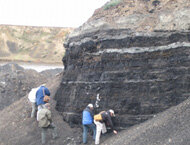
In coal-producing countries where it is difficult for Japanese private sector to gain entry, JCOAL conducts basic surveys including geological surveys, geophysical exploration surveys, and drilling surveys in advance to encourage Japanese companies to survey and develop coal mines. Further, JCOAL collects and analyzes coal-related data and information useful for surveying and developing coal resources.
(2)Assessment of Coal Resources and Reserves
Since FY2009, JCOAL has collected data about coal quality and coal reserves including low-rank coals and untapped resources in Japan, Indonesia, Australia, North America (US and Canada), Mongolia, Russia, Mozambique, South Africa and Colombia. Collected data is available in the Coal Data Bank.
2.Coal Development and Infrastructure Survey
The assessment of a coal mine requires a wide range of surveys and analysis, including assessing the quantity of coal resource, mining method, mine design (including coal mining, coal preparation, and transportation), operations design, transportation infrastructure, coal sale planning, and environmental measures. Under contract to coal companies and other customers, JCOAL has experts in the relevant fields undertake work such as the surveys required for coal mine development, the assessment of existing mines, and consulting on improvements to operating practices at working mines.
JCOAL also undertakes infrastructure surveys for JOGMEC and other projects in coal-producing countries, including Indonesia, India, Vietnam, Myanmar, China, and Mozambique, etc.
3.Sustainable Coal Development
Along with sound mine operation by the coal company, social responsibility in regions where mines are located is also important to achieving sustainable coal development. Broad-based regional development in which coal mining plays a central role and that takes account of the environment contributes to development of a sustainable coal industry.
As part of the JOGMEC's Clean Coal Town Project, JCOAL has formulated masterplans for future coal-related industry made up of an efficient combination of coal-fired power generation and coal processing businesses in China, Vietnam, Indonesia, and Mozambique. The plan includes consideration both for making good use of coal resources and the impact on the environment.
Mozambique is one of the few coal-producing countries with potential for the production of high-quality coking coal, with the coal mining region of Tete province being recognized as important for providing a reliable future source of coal for Japan. The Clean Coal Town Project in the coal mining region of Tete province has received a positive response from coal companies working in the region, the Mozambique government, local government, and the local community for proposals that include using small-scale mine-mouth power generation and the production of bio-coal briquettes as worthwhile ways to make use of coal other than exporting it.
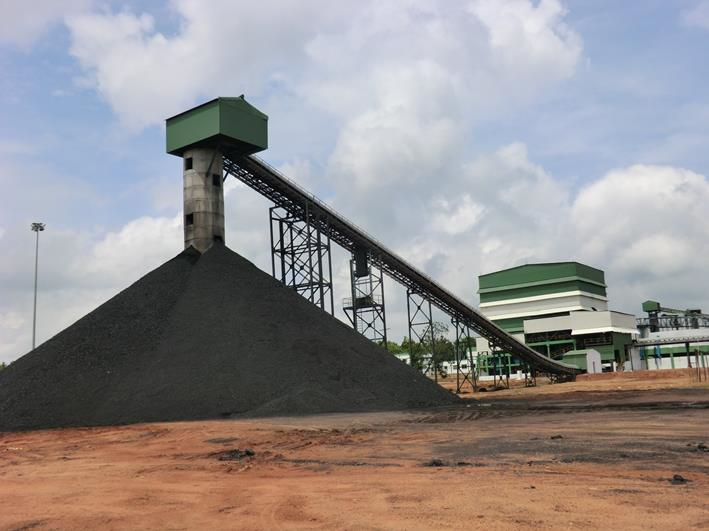
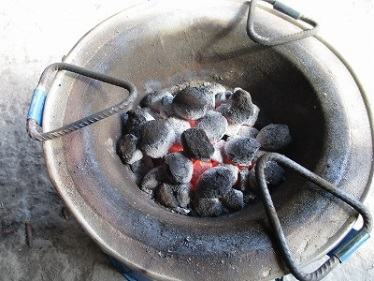
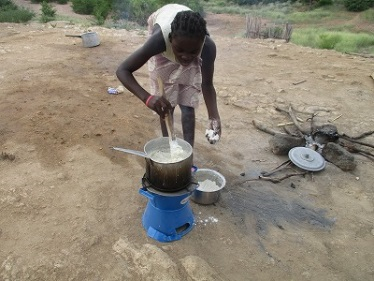
Cooking using bio coal briquettes
4.Environment-friendly Mine Development
(1)Cleaning Fuel Coal Preparation
Here, "Coal Preparation" means the technology of producing of clean coal with a lower ash and sulfur content by removing the rock and other inorganic material contained in mined coal prior to combustion. This increases generation efficiency by reducing energy use in transportation and at the power plant and minimizing environmental impacts. To date, model coal preparation plants have been built in China, Vietnam, and India through NEDO projects to encourage wider use of superior Japanese coal preparation techniques. JCOAL can provide engineering support from the basic design of the preparation plants through to their completion, and operational support that has extended from appropriate operating practices to the formulation of mining and preparation plans based on supply and demand program.
Selective mining is one way to obtain clean coal at coal mines that lack preparation plants. This means extracting only high-quality coal, avoiding low-quality coal that contains parting or is mixed with rock from the edges of the coal seam. In the case of Indonesia, the amount of the low-quality coal discarded for this reason at open cut mining gob is said to total 10% of the coal seam. JCOAL's Re-locatable coal preparation technology provides a very effective and economical way to better utilize coal resources by visiting each open cut mining gob to obtain clean coal from discharged low-quality coal

(2)Treatment of Mine Wastewater
What is notable about wastewater treatment at mines is the amount of treatment required, including coal preparation wastewater containing large amounts of suspended fine particles, bright red mine water containing large amounts of iron, and highly acidic stagnant water from refuse dumps after rainfall. This means that choosing the wrong treatment technology will be costly for the company concerned. JCOAL has practical techniques for treating large amounts of mine wastewater at low cost, with experience of providing training and advice in Indonesia and Vietnam.
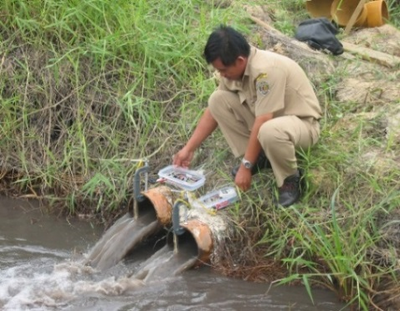
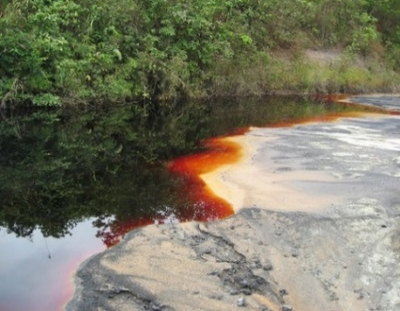
Training of wastewater monitoring. Strong acid water in refuse dump.
5.Transfer of Mining Technology
JCOAL has previously engaged in technology transfer projects that contribute to better productivity and safety in countries such as China, Indonesia, Vietnam, India, and Turkey etc. by training local coal mining engineers on Japan's excellent coal mining technology.
As part of work on improving the capabilities of educational agencies to encourage sustainable mineral resource development in Mozambique, a JICA project has since fiscal 2014 been running training for teachers at Eduardo Mondlane University and Tete Polytechnic Institute. Training has also been undertaken to equip staff of the Mozambique Ministry of Mineral Resources and Energy, the supervisory agency for mineral resource development in Mozambique, with the knowledge and skills for supervising sustainable coal development.
6.Programs for Human Resources Development
In order to ensure human resources for coal resources development, JCOAL has been conducting programs for human resources development that are tailored for Japanese students and young business people since fiscal 2008. Under such programs in cooperation with Mining and Materials Processing Institute of Japan (MMIJ) and universities with courses on natural resources and also with companies in relevant line of business, JCOAL conducts internship programs both in Japan and overseas, for which original course materials have been developed, well-tailored lectures at such universities are organized.
Regular courses are also run for the systematic study of the basics of coal in which specialists in all aspects from the mining of coal to its use are invited to teach junior corporate staff working in coal-related fields.

